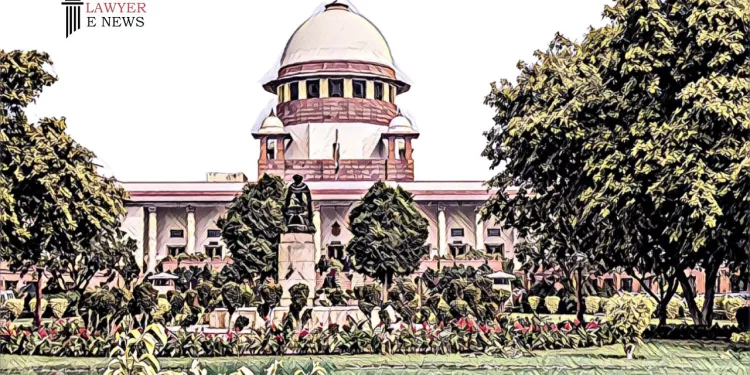Supreme Court Rules Nagar Nigam’s Workshop as ‘Factory’ Under ESI Act for Employing Over Ten Workers

In a landmark ruling, the Supreme Court of India has held that the workshop operated by Nagar Nigam Allahabad qualifies as a ‘factory’ under the Employees’ State Insurance (ESI) Act, 1948, reversing the Allahabad High Court’s decision. This judgment mandates that Nagar Nigam Allahabad must comply with ESI Act provisions, including making statutory contributions for its employees.
Background of the Case
The case, The Employees State Insurance Corporation Ltd. v. Nagar Nigam Allahabad and Anr., stems from a long-standing dispute over whether the Nagar Nigam’s workshop, which repairs and maintains vehicles, falls under the definition of a ‘factory’ as per the ESI Act. Initially, the Allahabad High Court ruled in favor of Nagar Nigam, exempting it from the Act’s coverage. The Employees State Insurance Corporation (ESIC) challenged this decision, leading to the present appeal in the Supreme Court.
Key Points of the Judgment
Definition of ‘Factory’: The Supreme Court concluded that the Nagar Nigam’s workshop meets the definition of a ‘factory’ under Section 2(12) of the ESI Act, as it employs more than ten workers and engages in a manufacturing process.
High Court’s Error in Jurisdiction: The Court observed that the Allahabad High Court erred in exercising its writ jurisdiction without directing Nagar Nigam to seek remedies before the Insurance Court, which is the appropriate forum for such disputes.
Historical Compliance: The Supreme Court noted that Nagar Nigam had previously complied with the ESI Act requirements until 1978, thereby acknowledging its workshop as a factory under the Act.
Legal Precedents: Citing the Employers’ State Insurance Corporation v. Kakinada Municipality and J.P. Lights India v. Regional Director E.S.I. Corporation, Bangalore, the Court reaffirmed that workshops undertaking repairs and maintenance fall within the ambit of ‘manufacturing processes’.
Court Observations and Analysis
Justice Sandeep Mehta, delivering the judgment, emphasized the statutory definitions and the precedents which clearly bring workshops like that of Nagar Nigam under the ESI Act. The Court criticized the High Court for bypassing the established remedy mechanism provided under the Act, noting that disputes involving complex factual determinations should be adjudicated by the Insurance Court.
The Court also highlighted that the respondent’s failure to secure an exemption under Section 90 of the ESI Act from the appropriate government further solidified their obligation to comply with the Act’s provisions.
Conclusion and Future Implications
The Supreme Court’s ruling reaffirms the broad applicability of the ESI Act to various types of workshops, ensuring that employees engaged in such establishments are afforded statutory benefits. This decision not only reinstates the ESIC’s authority to enforce compliance but also sets a precedent for similar cases involving municipal and local bodies.
With this ruling, Nagar Nigam Allahabad is directed to approach the Insurance Court for further resolution, upholding the principle that factual disputes in such cases must be meticulously examined by specialized tribunals.
Date of Decision: May 17, 2024
The Employees State Insurance Corporation Ltd. v. Nagar Nigam Allahabad and Anr.





